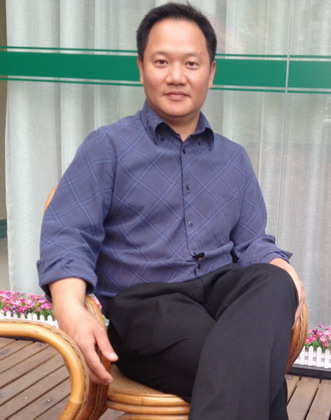Wind in the sails
Updated: 2013-03-21 14:30
By Cecily Liu and Zhang Chunyan (China Daily)
|
|||||||||||
Last year, Ghrepower was selected by the Welsh government as one of 50 businesses to participate in its High Potential Starts project, a scheme designed to help young SMEs grow by providing them with financial, legal and technical consultancy services.
Launched in January 2012, the three-year scheme would cost the Welsh government 2 million pounds, but is forecast to generate an extra 36 million pounds of turnover for participating businesses and at least 480 well-paid jobs for the local economy.
|
 Joseph Deng, director of Ghrepower UK Ltd. |
"The scheme has helped us a lot, especially in terms of widening our business connections," Deng says. He regularly attended seminars, talks and conferences that the government organized to introduce SMEs to expert advisers.
One business Deng met through the scheme is an energy sector consultant that has done many projects for well-known German power generating companies.
The company helped Ghrepower develop a new technology that allowed wind turbines to function properly even when the temperature drops below 0 C.
"When the weather gets cold, the propeller blades of the wind turbine sometimes freeze, but the new technology generates heat internally to prevent this," he says.
Meanwhile, another consultancy firm has done research on the market for small and medium-size wind turbines across Europe for Ghrepower, at Deng's request.
Deng says that such research could easily cost 1,000 pounds to do, but it was given to Deng's team for free as a part of the scheme package.
The scheme also put Deng's team together with many local banks, which provide guidance on how to prepare the right documents to get funding for wind turbine construction.
Installing a medium-size wind turbine would generally cost about half a million pounds for the whole project, and it is hard for Ghrepower's customers to provide this investment by themselves. Therefore Deng's team has been helping their customers in getting bank funding.
"In the past, it has been particularly hard for customers to apply for bank funding for our wind turbines because we only have two years of history in Wales, but the life of a wind turbine is 20 years, so our track record is not enough," Deng says. "In our industry, we say that such wind turbines are not 'bankable'."
One solution his team recently devised is to contribute a part of the capital investment for its customers, in exchange for the subsidy that the British government gives to users of renewable energy.
But the scheme allowed him to meet many banks that specialize in financing small-scale projects, which could be a perfect solution to the funding challenge. "It was very helpful to hear from them the criteria that they judge projects by," he says.
Related Stories
US ready to levy duties on Chinese wind turbines 2013-01-21 15:10
Chinese firm suing Obama to 'fight all the way' 2012-10-18 15:35
Chinese wind turbine maker may bid for Vestas 2012-07-10 10:23
Goldwind connects to Australian grid 2012-07-05 14:56
Warning over wind turbine tower tariffs 2012-05-31 17:00
Turbine makers take breather 2012-04-05 08:04
Today's Top News
Police continue manhunt for 2nd bombing suspect
H7N9 flu transmission studied
8% growth predicted for Q2
Nuke reactor gets foreign contract
First couple on Time's list of most influential
'Green' awareness levels drop in Beijing
Palace Museum spruces up
Trading channels 'need to broaden'
Hot Topics
Lunar probe , China growth forecasts, Emission rules get tougher, China seen through 'colored lens', International board,
Editor's Picks

|

|

|

|

|

|





